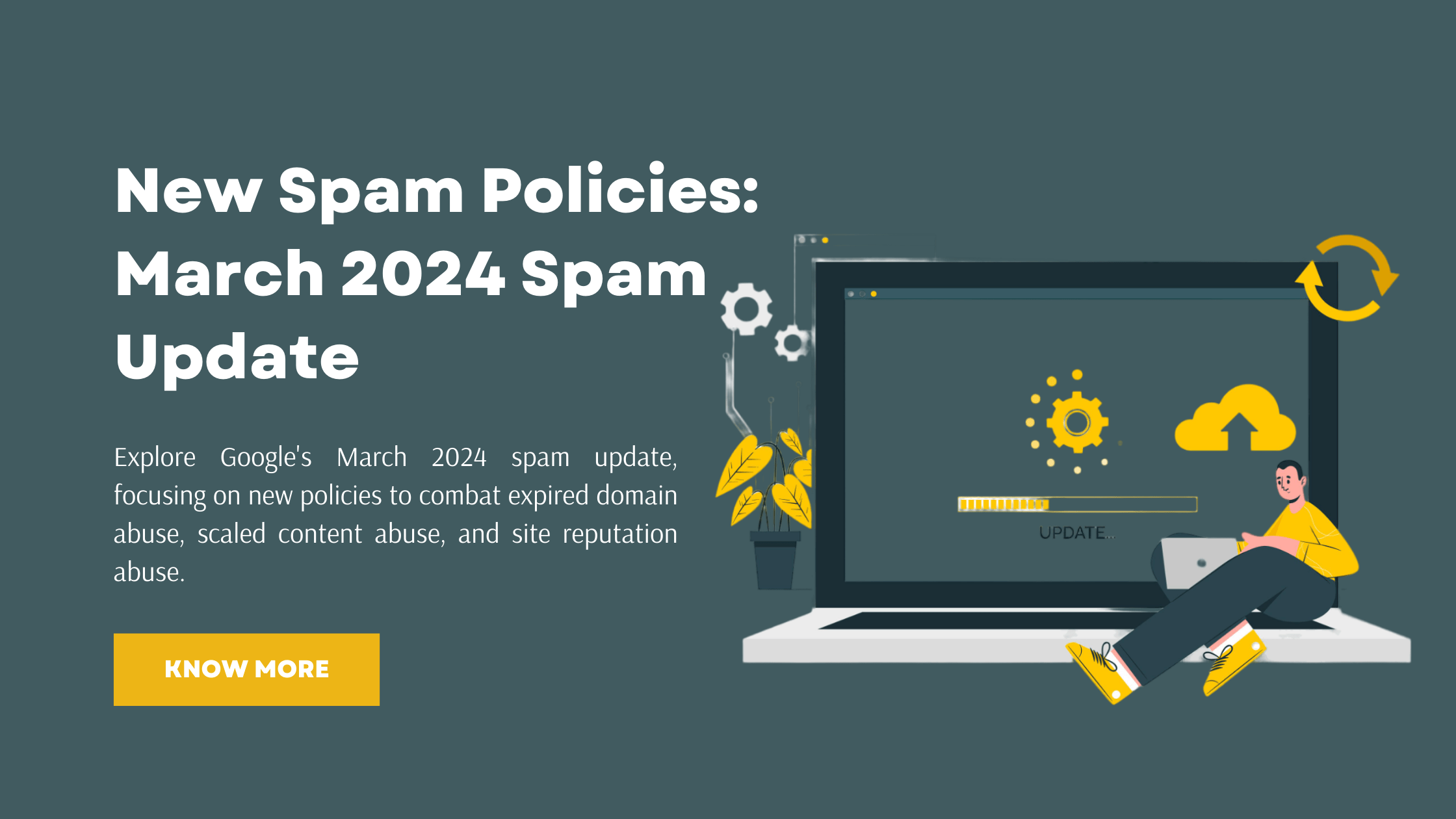In March 2024, Google launched a new spam update to improve the quality of search results and ensure users find helpful and valuable content. This update includes stricter guidelines to address specific types of spam, such as expired domain abuse, scaled content abuse, and site reputation abuse. These changes are designed to prevent manipulative practices that degrade the quality of search results and negatively impact user experience.
Expired Domain Abuse
What is Expired Domain Abuse?
Expired domain abuse occurs when someone purchases an expired domain name and repurposes it primarily to manipulate search rankings. For instance, a domain previously used by a reputable medical site might be bought and then repurposed to host low-quality, irrelevant content, like casino-related material. The goal is to exploit the past reputation of the domain to gain higher search rankings without providing valuable content to users.
Why is it a Problem?
This practice is problematic because it deceives search engines and users. The new owner benefits from the old domain’s established reputation, but the content often provides little to no value to visitors. These sites are not intended to attract visitors through their content but rather through manipulative search ranking tactics.
Google’s Stance
Google’s new policy makes it clear that repurposing old domains in this way is not acceptable. It’s perfectly fine to use an old domain for a new, original site that genuinely aims to serve people. However, using an expired domain to host low-quality content intended solely to manipulate search rankings violates Google’s spam policies.
Scaled Content Abuse
What is Scaled Content Abuse?
Scaled content abuse involves generating many pages primarily to manipulate search rankings rather than to help users. This content is usually unoriginal and offers little to no value, regardless of whether it is created by humans, automation, or a combination of both.
Difference from Previous Policies
Previously, Google’s spam policies addressed “automatically-generated content.” The updated policy now includes “scaled content abuse,” ensuring that any form of mass-produced, low-value content, regardless of how it is created, can be addressed effectively.
Google’s Stance
The focus is on the intent and value of the content. If the primary purpose of the content is to manipulate search rankings without providing real value to users, it is considered spam. Google’s goal is to promote high-quality, helpful content and ensure that search rankings reflect this.
Site Reputation Abuse
What is Site Reputation Abuse?
Site reputation abuse occurs when third-party pages are published with little or no oversight from the host site, primarily to manipulate search rankings. These pages might include sponsored content, advertisements, or partner pages that are not closely monitored and offer little to no value to users.
Understanding the Policy
Not all third-party content violates Google’s spam policies. For example, legitimate advertising content meant for regular readers of a publication is usually not considered spam. The key issue is the intent and oversight. Content designed to manipulate search rankings without proper oversight from the host site is problematic.
Google’s Stance
Google’s updated policy targets third-party content that is hosted without close oversight and intended to manipulate search rankings. Site owners need to ensure that such content is blocked from Google Search to avoid violating spam policies. The new policy will take effect on May 5, 2024, giving site owners time to prepare.
FAQs on the New Spam Policies
What Ranking Signals Does a Site Have?
A site’s ranking signals include factors such as content quality, relevance, user experience, backlinks, and more. These signals help Google determine how valuable and trustworthy a site is for users.
Is My Coupon Area Considered Spam?
If your coupon area is produced in collaboration with a third party but provides real value to users and is closely monitored, it is not considered spam. The key is to ensure that the content is useful, relevant, and under proper oversight.
Google’s Goal
The primary goal of Google’s new spam policies is to ensure that users find great, helpful content in search results. By cracking down on manipulative practices like expired domain abuse, scaled content abuse, and site reputation abuse, Google aims to promote high-quality content creators and improve the overall user experience.
Preparing for the Changes
Site owners should review their content and third-party practices to ensure compliance with the new policies. This includes:
- Reviewing Expired Domains: Ensure any old domains repurposed for new sites are genuinely aimed at providing valuable content.
- Assessing Content Creation Practices: Avoid generating large amounts of low-value content. Focus on quality and user value, whether content is automated or created by humans.
- Monitoring Third-Party Content: Ensure third-party content on your site is closely monitored and provides real value. Avoid hosting content intended solely to manipulate search rankings.
By adhering to these guidelines, site owners can avoid penalties and contribute to a better, more valuable web for all users.
Conclusion
Google’s March 2024 spam update introduces crucial changes to combat various forms of spam, ensuring that search results remain helpful and relevant. By addressing expired domain abuse, scaled content abuse, and site reputation abuse, Google aims to create a better user experience and promote high-quality content. Site owners should review and adjust their practices to comply with these new policies, ultimately contributing to a more valuable and trustworthy internet.

